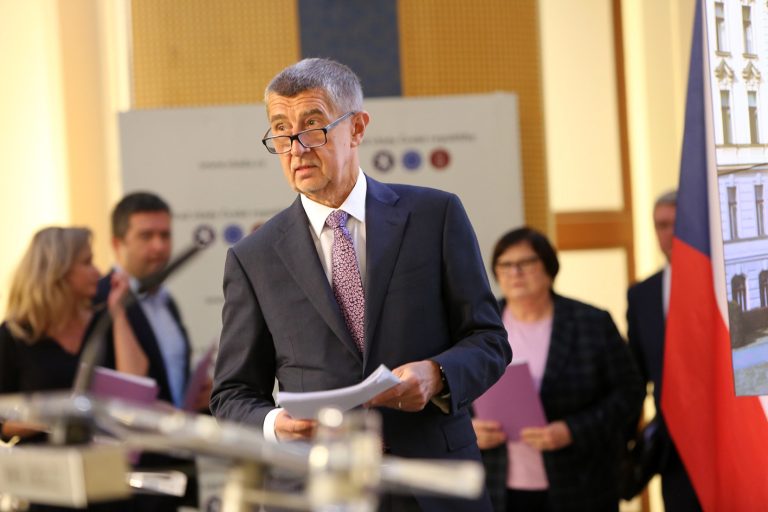The Czech opposition ANO will leave the liberal Renew Europe group in the European Parliament (EP) as well as the ALDE European liberal party, as it would not be able to fulfil its programme from within this group, ANO leader Andrej Babis announced at a press conference this morning.
ANO, which won seven EP seats in the recent elections, decided on the step on Thursday at a meeting of its governing board.
The movement is now continuing negotiations in the EP on possibly joining another group, Babis said, and the decision will be made in the next two weeks. Joining the nationalist conservative European Conservatives and Reformists (ECR) group is not a solution, he added.
“We went to the (EP) elections to fight illegal migration and to change the Green Deal, which is destroying European industry and agriculture and negatively impacting our citizens,” said Babis. “Based on the negotiations, we came to the conclusion that Renew and ALDE simply have different positions to ANO.”
Babis went on to claim that Renew and ALDE support the integration of the EU into a federation, strengthening Brussels, suppressing small and medium-sized EU member states and their identity and culture, abolishing the veto vote in the European Council, and introducing supranational candidates to the EP. At the same time, they are not prepared to do enough to revise the Green Deal, he said.
“The ECR group is certainly not the solution for us. Representatives of other Czech political parties have a big say in these groups and the ECR is certainly not our choice. We will see, maybe a new group will be formed,” Babis added. The ECR group includes MEPs from the governing Civic Democrats (ODS).
According to the latest data, the Renew Europe group had 81 MEPs in the European Parliament, which will now be seven fewer. The centre-right European People’s Party (EPP) has 189 seats, the Socialists and Democrats (S&D) 136 seats, and the ECR 83. The far-right Identity and Democracy Group (ID) has 58 seats, the Greens/European Free Alliance 51, and the Left grouping 39. There are 38 newly elected MEPs who do not belong to any of the existing EP groups , and 45 others who are unaffiliated.






